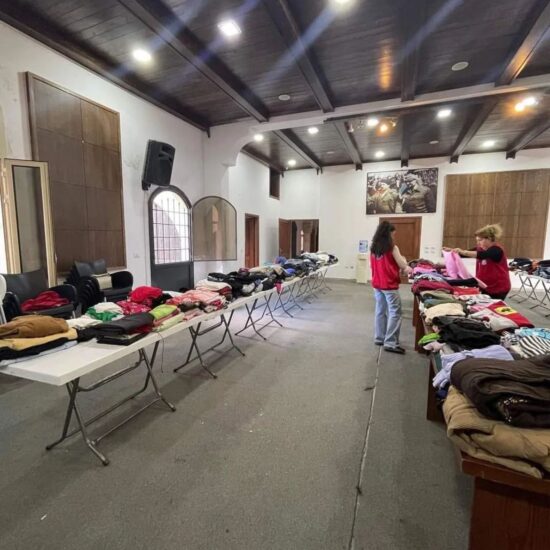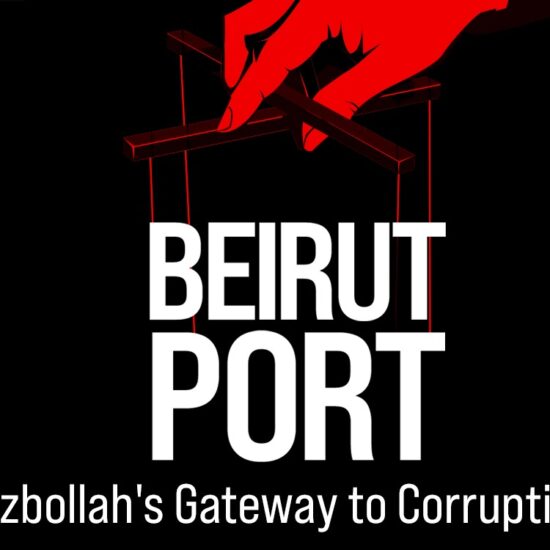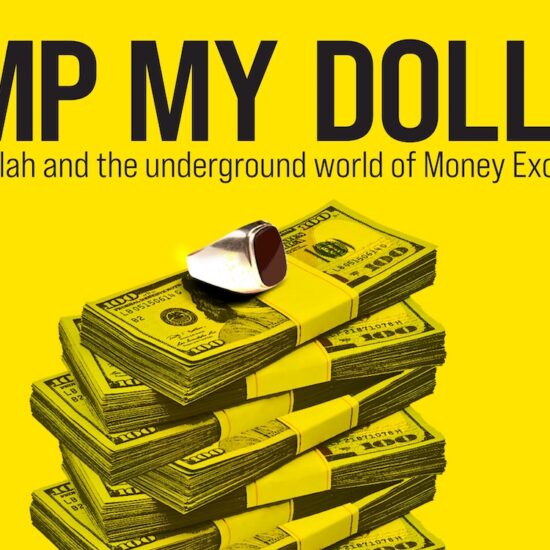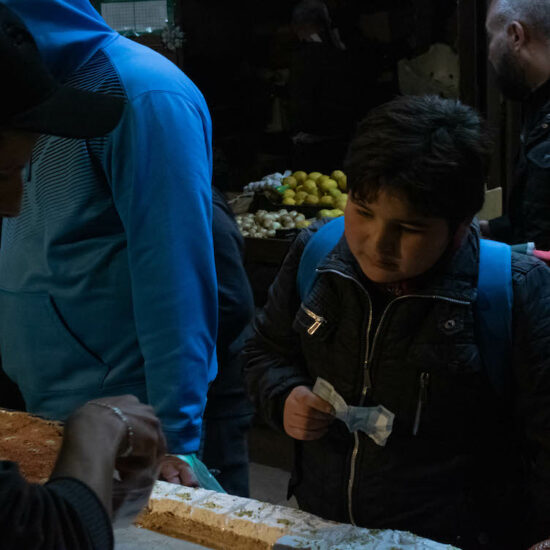
Mustapha Hamui walked into the Lebanese Embassy in Accra, Ghana, in May 2018 to cast his vote in the Parliamentary elections, and he says he felt just like in a small Lebanon.
Representatives of the Lebanese sectarian political parties that have been ruling the country since the civil war each had their own colorful stands, with supporters loitering around, waving the familiar flags.
“They all looked like they were scared of one another because they didn’t want anyone to exert pressure on the voters,” Hamui, a young businessman, and also an active blogger who comments on Lebanese politics, told NOW.
The country hadn’t organized any elections since 2009. The Parliament in Beirut had postponed them three times, in 2013, then in 2014 and 2017. Reasons varied from the security situation, the failure of the Parliament to elect a new president, and the technical requirements of holding a proper poll.
Voting in the diaspora was also a matter of harsh debate among Lebanese politicians, and the 2018 poll organized in the embassies across the world marked a historical first for Lebanese living abroad. In total, some 82,970 expat Lebanese registered to vote in 2018.
With the next round of elections set to take place in spring 2022, and a growing number of people leaving Lebanon to live abroad due to numerous shortages for basic utilities during a financial crisis that has brought the economy to the ground, voting in the diaspora is again one of the spiky topics for Lebanese politicians.
Unlike 2018, when Lebanon residents and non-residents were treated equally, being allowed to vote and elect the 128 parliament members, in 2022, Lebanese voting abroad, although in greater numbers, are only allowed to vote for candidates running for 6 seats assigned to the diaspora. According to the 2008 electoral law, the 6 additional seats would represent six different sects – Maronites, Greek Orthodox, Greek Catholics, Sunnis, Shiites and Druze – and they would also be divided onto six continents.
With the registration deadline approaching on November 20, Lebanese residing abroad were left confused and outraged. Even political parties seemed to be confused- is it worth it to campaign for 6 seats?
“We haven’t received anything from the embassy yet, which is weird because even political parties used to invite us to dinner parties and make themselves visible through campaigns and events, but at the moment they seem to do that much less, under the radar,” Hamui explained.
Lebanon has one of the largest diasporas in the world, estimated at up to 15 million worldwide, more than double the country’s population. Although experts and activists say only a small fraction of them actually register to vote, many of them found the notion of their votes being limited to six seats unfair.
“We are against being separated from our fellow Lebanese. They can’t treat us like we are anything but normal citizens that should partake in the voting process for the 128 MPs. We represent Lebanon, we want ministers that represent all of Lebanon, not just us abroad,” said Ghassan Hasan, activist in The Lebanese Diaspora Network, an online initiative to connect the Lebanese diaspora to the country’s issues.
Unlawful law
Ali Mourad, senior Legal advisor at Kulluna Irada, a civic organization advocating for political reform, explained that this massive growth of the diaspora’s interest in the elections has been building in the past 15 years, especially after the Cedar Revolution and Syria’s withdrawal.
“After the revolution in 2019 the diaspora started to show intense interest in the elections but the first electoral law was set in 2008, which allowed the diaspora to vote and laid a 12 year plan, which was the root of the current issue, ” Mourad explained.
The government aimed to create a 16th district, on top of the 15 regions in the country. But this new district would represent the Lebanese across the rest of the world.
This law stated that the six seats the expats would vote for in 2022 would be added to the existing 128, resulting in a parliament made of 134 MPs. In 2026, the Lebanese would vote for a total of 128 seats again, but 6 in the diaspora and 122 in the country.
“We’re in front of a situation and a legal text that was not discussed properly,” Mourad told NOW. “They didn’t even specify how they’re going to distribute the sects over the six continents. The whole issue has been left in the hands of a committee formed by the ministry of interior affairs and the ministry of foreign affairs,” Mourad stated.
Neither the committee nor the two ministries have had public sessions to look at how they were going to apply the law so far, although the registration deadline is in less than two months, on November 20th.
Mourad explained that there were many reasons to oppose the application of this electoral law.
“I want to tell them to register but with the issue of the six seats I might tell them to save up money and go vote in their district in Lebanon for the 128 MPs instead.”
Daizy Gedeon, movie maker
One main issue was that the number of Lebanese residing abroad exceeded the number of the country’s residents. Moreover, for the first time in the history of Lebanon, expats have grown interested in the political life in Lebanon. Whether it was through protests, daily follow-ups, charity works or donations, they were affected by everything going on in Lebanon in the past few years.
“There’s also the feeling of guilt when you live abroad so we want to transform this guilt into positive energy through making an impact in the country,” Mourad said.
He also explained that the notion of equality mattered for many of the diaspora members. People needed to feel equal in rights to their fellow Lebanese in the country. He stressed the importance of data protection for the diaspora so that parties would not contact them.
“This data is obtained by embassies that should not be leaking personal information when expats go to get some paperwork done. Either all parties have our information or none at all.”
Mourad says that, most likely, the parties are going to wait to see how many Lebanese expats were going to register to vote abroad, and then estimate their likelihood to win or to lose in lieu of these voters. According to these estimates, the government would make a decision regarding the electoral law and the six seats.
He also added that since the diaspora was free from political pressures and the direct impacts of the crisis, they could provide an objective perspective and vote for people that might impact Lebanon differently.
But the Lebanese diaspora, at least those expats who are more involved politically, are seen as largely progressive, seeking to reform Lebanon’s sectarian political system. Many reject the law that simply applies the same sectarian system to the 6 seats they are supposed to elect.
Ready to fundraise and raise more awareness
“They made us leave our country and while we wanted to give back everything good we learned from living abroad, they want us to inherit a failing system that has ruined the country,” Lebanese Diaspora Network’s Hasan explained.
“As diaspora, we are fighting this system and we don’t want the sectarian language to follow us here, we want to rid Lebanon of it,” he added.
Fearmongering and conspiracies related to the elections abound, he said. Information circulating in the media quoted sources saying that the rules of the next elections were already agreed upon by the dedicated committee and that the election date was going to be changed to March 27. Moreover, it claimed that the diaspora won’t vote due to “logistical and financial reasons”. The six seats would be, therefore, canceled.
“They’re trying to scare us from our votes being totally obliterated so that we’ll, later on, settle for whatever they give us, including the six seats,” Hasan said.
Hasan also added that the diaspora was ready to finance the elections if need be, because for them, finances were being used as an excuse that could easily be fixed.
“We’re in front of a situation and a legal text that was not discussed properly.”
Ali Mourad, Kulluna Irada
“Gebran Bassil when he was the minister of foreign affairs stated during the last elections that the diaspora’s elections cost around one million and a half dollars, that [sum] could be easily arranged [by donations] so it’s not an issue,” he explained.
Hasan lived in Saudi Arabia so it would be easy for him to simply return to Lebanon to vote. Many Lebanese residing in Australia, Canada and America, however, can not benefit from the same privilege.
Several political pages and diaspora-related pages on social media, including Kulluna Irada, started awareness campaigns to inform the Lebanese abroad on the elections.
But for the Lebanese-Australian director Daizy Gedeon, this was not enough as many of the expats did not speak the language nor were they following up daily news.
This is when Gedeon decided to release her film “Enough! Lebanon’s Darkest Hour”, which exposed the negligence and corruption that led the country astray.
“My aim is to tour as many countries as I possibly can before the elections to inform the diaspora about what is happening in the country in hopes of them joining the initiative to change,” Gedeon said.
Gedeon explained that even through the trailer expats have started to understand the importance of their votes and their connection to the issues currently plaguing the country.
“I want to tell them to register but with the issue of the six seats I might tell them to save up money and go vote in their district in Lebanon for the 128 MPs instead,” the director explained.
A force of change
In 2018, out of the registered Lebanese voters in the diaspora, approximately 40,000 actually voted. Gedeon found this phenomenon “embarrassing and shocking”.
“We come to Lebanon and enjoy everything that is good and then leave all that is bad for the Lebanese residing in the country to deal with it. No, we have a responsibility, we can’t abandon our families and friends when things get tough,” Gedeon stated.
The director insisted that the diaspora has a big responsibility that has the potential to impact the country as a whole. Change resides in their hands and the government was aware of this, which was why they were not going to make it easy, she said.
Gedeon plans on voting in Lebanon next year and for that, she needed her Lebanese passport. It was hard to obtain.
“People were lining up to get their passports since 4 am and people would just cut the queue because they had connections. The wait was infuriating and it took one month when it should have been a couple of days,” she added.
“We are against being separated from our fellow Lebanese. They can’t treat us like we are anything but normal citizens that should partake in the voting process for the 128 MPs.”
Ghassan Hasan, The Lebanese Diaspora Network
She said that her film about Lebanon was meant to remind Lebanese abroad of their connection to the country, as many tend to disconnect.
“The second and third generation of Lebanese immigrants want to reconnect with their country but they feel overwhelmed with all that is occurring at the moment. We have to simplify it for them, which is what I try to do through my film and my social media posts,” the director explained.
Hasan agreed that Lebanese expats had a sense of responsibility and wanted to contribute. They started by messaging their embassies to communicate to the Ministry of Foreign Affairs their demands, they were also collecting signatures for many petitions to reach the government. If the politicians were not going to take action and amend the law, the diaspora had plans to escalate, he explained.
“We’re planning to organize protests and more awareness conferences in Lebanon to make sure our efforts yield results,” he said.
For Hasan, many expats wish to return, but find it impossible due to the current crisis. Their only hope for change is through elections.
“They want to dismantle our power and silence our voices, so we’ll use pressure wherever we can to make sure that does not happen,” Hasan said.
Dana Hourany is a multimedia journalist with @NOW_leb. She is on Instagram @danahourany.








